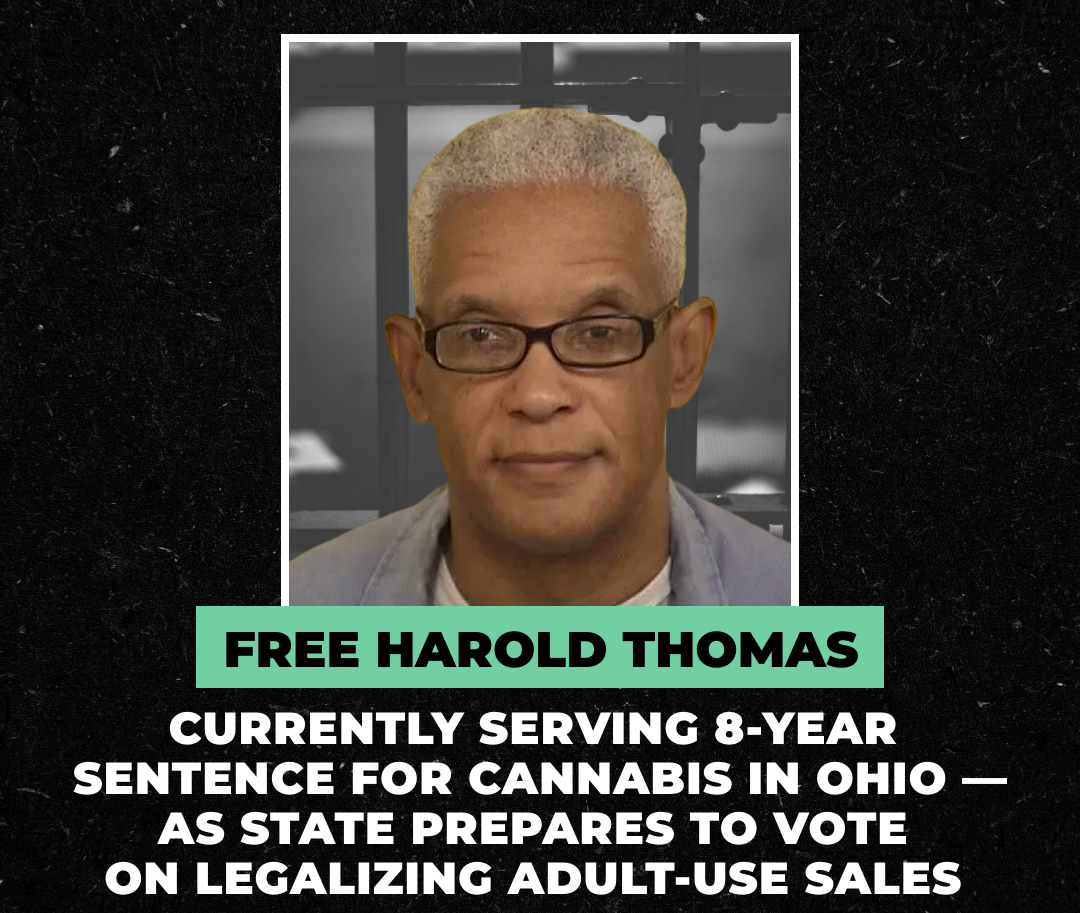Ohio Becomes 24th State to Legalize Cannabis, but the Battle for Justice Persists
Ohio Issue 2 Passes! A victory for cannabis, but the fight for justice continues...
The Last Prisoner Project (LPP) celebrates Ohio's groundbreaking election where 57% of residents voted approved Issue 2 legalizing adult-use cannabis as a momentous stride toward a more progressive cannabis policy in the state. However, the victory comes with a sobering reality—there is much work left to be done in rectifying the enduring harms of cannabis prohibition, exemplified by cases like that of Harold Thomas.
Harold's story, unfolding in 2015 when legal repercussions for a cannabis-related offense altered the trajectory of his life, reflects the broader struggles faced by many affected by cannabis prohibition who are still in prison or suffering the collateral consequences of having a cannabis record. In December 2015, Harold Thomas received a call from his friend about a cannabis delivery he was moving from Kansas. At that point, Harold did not know that the Cincinnati Police Department had already enlisted his friend as a confidential informant. Harold was later arrested, convicted of trafficking cannabis, and sentenced to 8 years in prison.
Despite the subsequent legalization of medical cannabis and now the approval of adult-use sales through Issue 2, the absence of automatic resentencing and record clearance provisions leaves a critical gap in redressing past injustices. The same action that has kept Harold from his family for almost a decade, is now legal. We must fight to free those like Harold.
Last Prisoner Project's
State of Cannabis Justice Report gives Ohio a grade of "D-". This underscores the need for continued advocacy and action. That is why we are encouraging readers to explore the full
report for a comprehensive understanding of Ohio's cannabis justice landscape and share Ohio's report card. We must continue to educate the public that now is the time to fight for cannabis criminal justice.
Now that Issue 2 has passed, the initated statute now moves to the state legislature for further rulemaking. LPP’s Jason Ortiz was on a recent Drug Enforcement and Policy Center panel on Issue 2 discussing what the state legislature may do in response. You can watch the recording and learn more about Issue 2's potential impacts here. We look forward to working with Ohio policymakers on incorporating cannabis criminal justice provisions that ensure no one is left behind as legalization moves forward.
The Last Prisoner Project remains steadfast in its commitment to ensuring that the victory of Issue 2 translates into tangible justice for all individuals impacted by past cannabis convictions in Ohio. We urge Ohioans to join the ongoing fight for justice by taking action—calling on Governor DeWine to grant cannabis clemency immediately and advocating for state-initiated, comprehensive relief measures.








